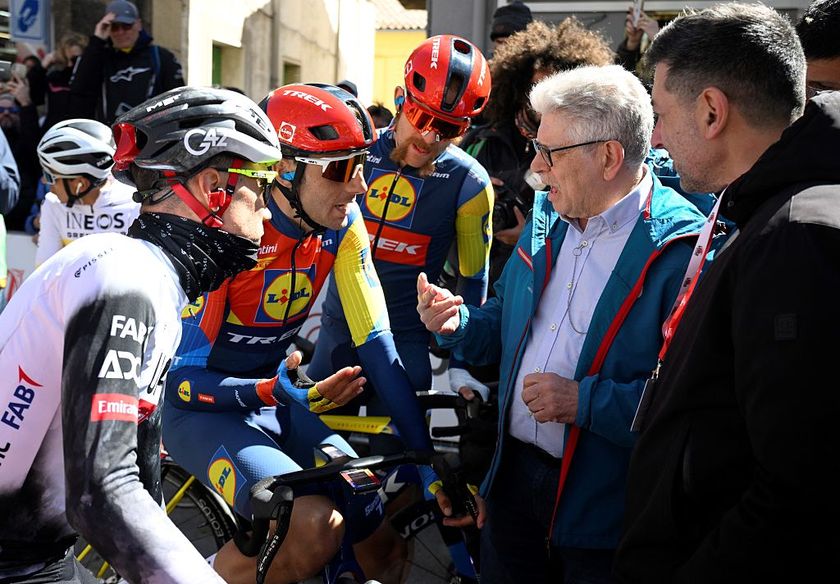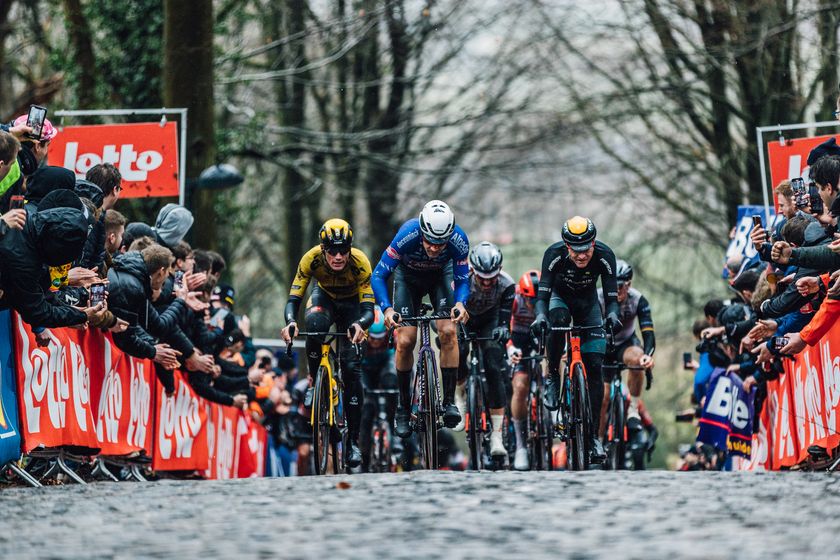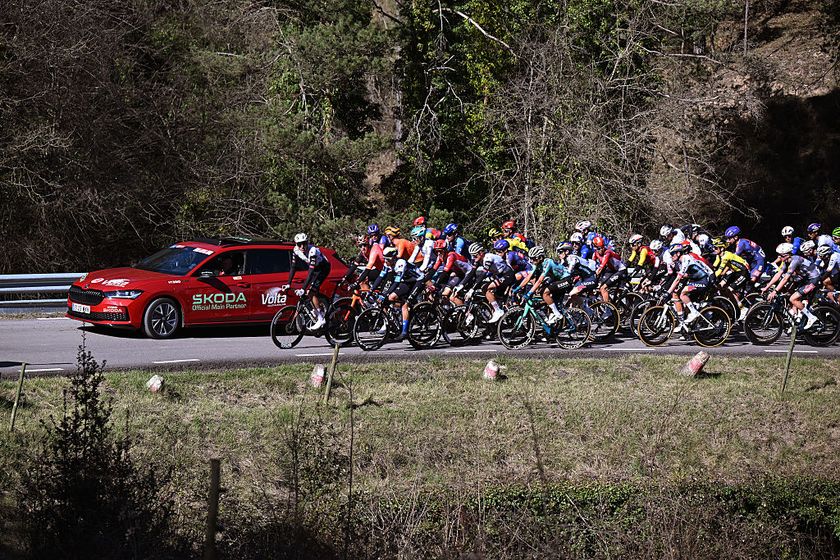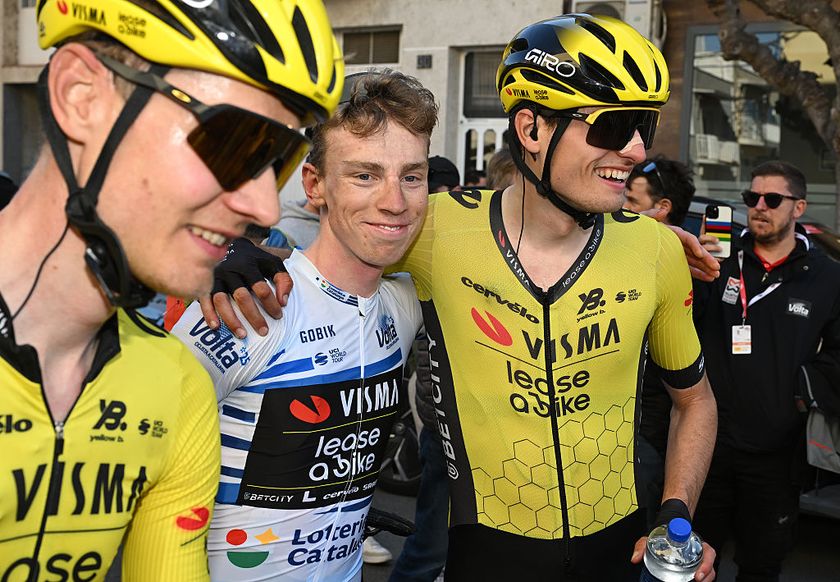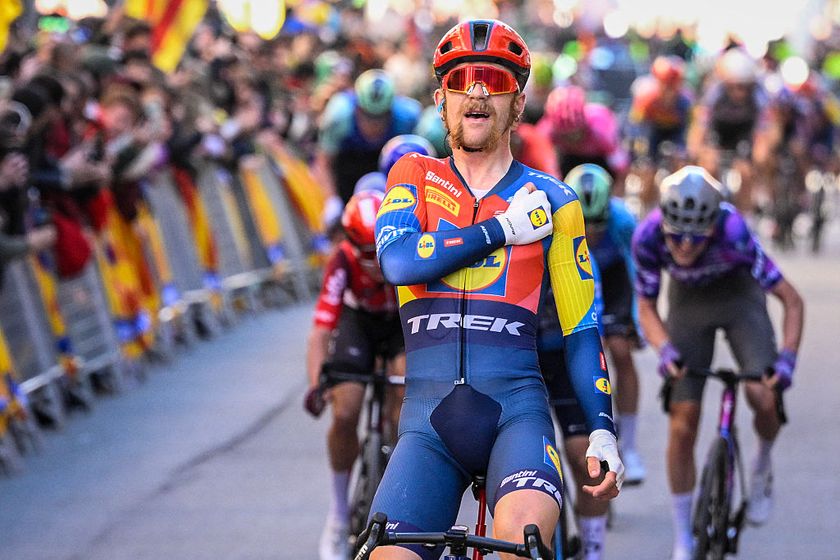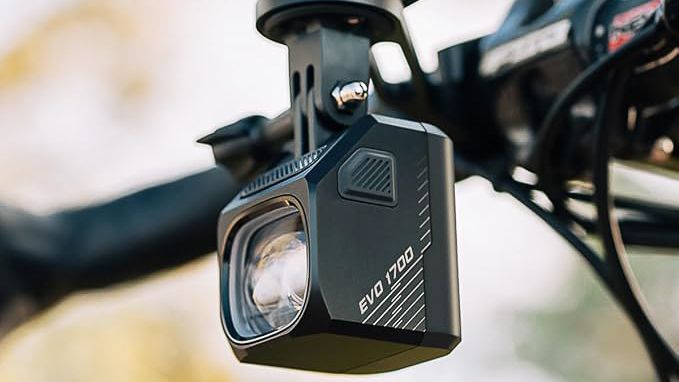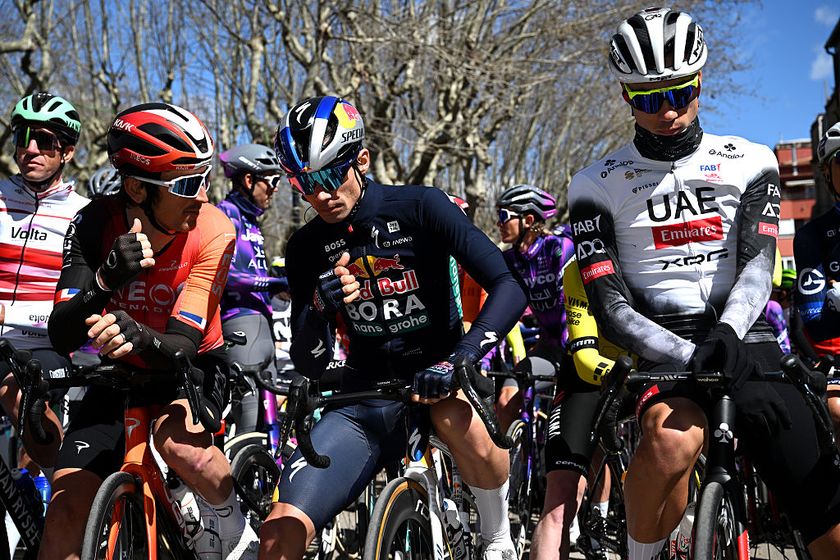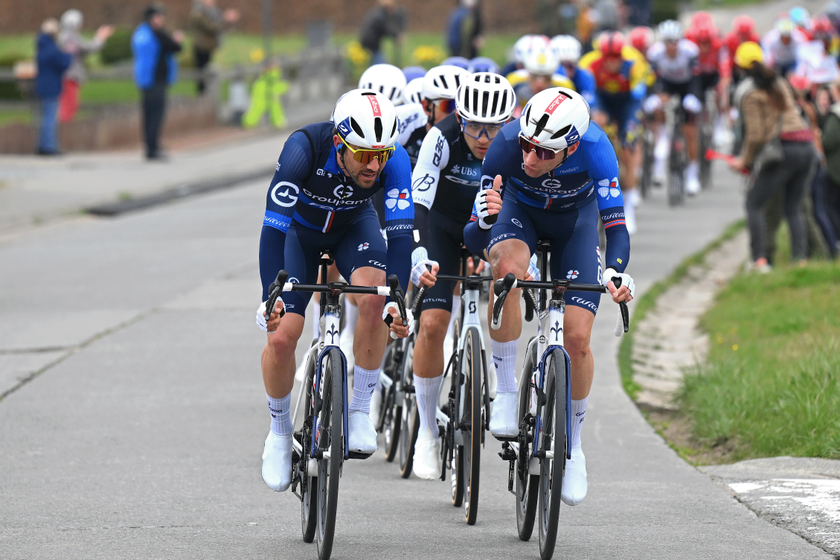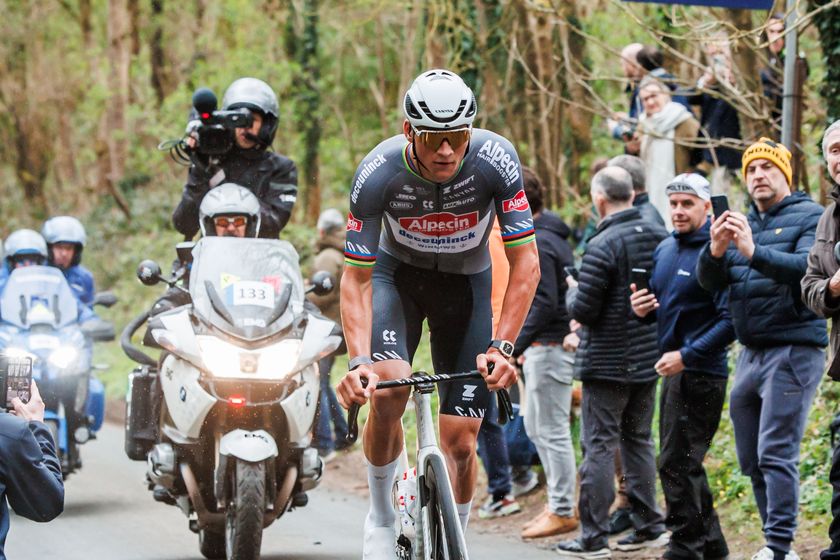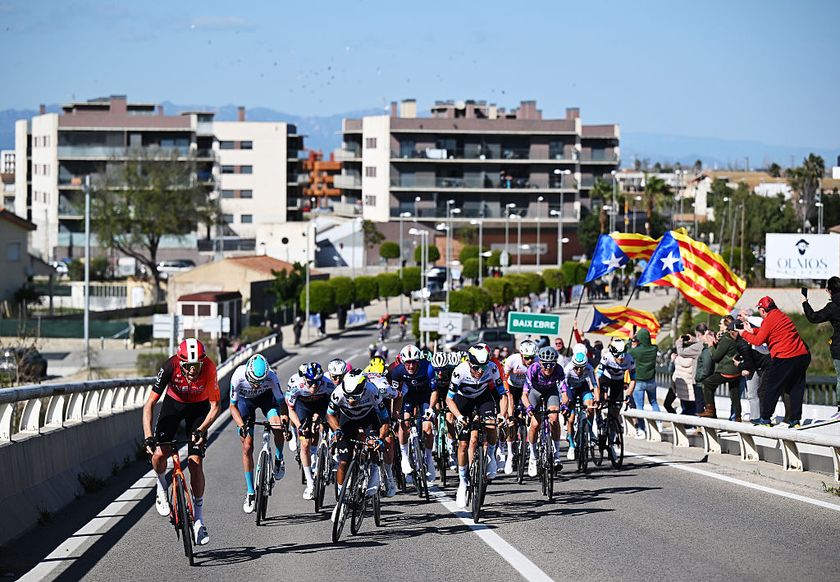Wiggins: Paris-Roubaix is bigger than the Tour de France
Sky rider on imitating Museeuw and the hell of the opening 220 kilometres



For Bradley Wiggins, hell is other people. Or more specifically, hell is other people during the 100 miles that precede the entry to the Arenberg Forest at Paris-Roubaix, rather than the jagged sections of pavé that follow it.
On Sunday, Wiggins becomes the first past Tour de France winner to line up at the Hell of the North since Greg LeMond in 1992, and though confident that he has the physical attributes to perform on the cobbles themselves, he is concerned about the ecstasy of scrambling for positions that marks its opening four hours.
"If you could just drop out of a helicopter with 40k to go on [Fabian] Cancellara’s wheel and then see if you could hold it when he goes, that’s an ideal scenario," Wiggins said in Kortrijk on Friday. "But there’s 220k before that of little French guys coming underneath you, chopping you, calling you a wanker and all this. That’s the reality of it. I’ve got to get through all of that to get to that position to be able to potentially stay with those guys if they go."
Wiggins was speaking to reporters following his final reconnaissance of the parcours on Friday morning. Still in his kit as he drained a postprandial coffee, he seemed to view the cobblestones almost as something of a terrestrial paradise, describing his week in Sky’s classics base in Kortrijk in somewhat idyllic terms.
"It’s been the most enjoyable period I’ve spent with the team in the past couple of years, it’s a fantastic group," Wiggins said. "And the setting as well, there’s so much love for cycling. When you’re out training people are so respectful and happy to see you. It’s just really nice to be involved in this Classics period because it’s all about the racing."
Warming to his theme, Wiggins raised eyebrows when he felt moved to label Paris-Roubaix as "the biggest cycling race in the world, bigger than the Tour de France, bigger than any other bike race," adding that it was probably the only race he will make a point of tuning in to watch when he hangs up his wheels and retires.
The love affair with Paris-Roubaix, he said, dated back to 1993, when he watched Franco Ballerini’s narrow defeat to Gilbert Duclos-Lassalle on television, and continued through the latter part of that decade when Wiggins would seek out a rare section of London cobbles and daydream that he was Johan Museeuw.
Get The Leadout Newsletter
The latest race content, interviews, features, reviews and expert buying guides, direct to your inbox!
"There was a little mews near where I lived in London and I used to ride up and down the mews pretending I was Johan Museeuw. That thought has never gone away," said Wiggins, who admitted to feeling another frisson when he checked out the real thing one final time on Friday morning.
"I was in Arenberg again today and it still feels like it did when I was twelve," he said. "I’m sure Cancellara and them feel the same although they might be too cool to admit it. But I don’t mind admitting it."
Present day perspective
On Sunday, of course, the Johan Museeuw role will be played by Cancellara or Tom Boonen, and Wiggins, making his first appearance in the race since 2011, is very much in the position of outsider. His best finish in Roubaix was 25th in 2009, and as his travails at last year’s Giro d’Italia demonstrated, Wiggins can look far from comfortable when forced to battle for the wheel in front of him.
Even so, he was optimistic about his prospects after a solid outing at the Tour of Flanders last weekend, saying that he felt he had the physical qualities to be rub shoulders with the favourites in the finale.
"I felt like I rode Flanders in an observatory position, I never really took any big risks. Whenever it got sketchy I moved back a bit," he said. "I don’t think my position did justice to my legs, but that makes you realise how good these guys [classics specialists] are – they come through all the risks, they take the risks, they put themselves on the line and I think that’s what Sunday’s about – forget everything else and just be willing to end up in hospital at the end of the night."
As he pointed out ahead of Scheldeprijs during the week, Wiggins’ down-scaling of his Grand Tour ambitions means that he enters Paris-Roubaix unfettered by concerns about compromising the rest of his season and is now apparently willing to take hitherto unthinkable risks. "In 2011, I still had one eye on the Tour. I don’t have that anymore, so if anything you can throw caution to the wind," he said.
Team leadership was a vexed issue during Wiggins’ time as a Grand Tour contender, but he declared himself content to enter Sunday’s race as a lieutenant to Edvald Boasson Hagen, with Geraint Thomas also in the line-up. After all, as every Johan Museeuw fan knows, it usually pays to have strength in numbers in the finale of Paris-Roubaix.
"You can’t start out with six leaders in Paris-Roubaix, you have to have sort of an idea of where you’re heading," Wiggins said. "But that doesn’t mean it’s everyone peeling off to the Arenberg to leave Eddy get on with it, it’s about having numbers.
"Any rider who does well in Roubaix has teammates around him with 50k to go. That’s the goal: to be close to Eddy until that final. We’ve seen the last couple of years. We had four guys in the front group two years ago but they didn’t have the legs and that’s ultimately what it always comes down to."
Click here to subscribe to the Cyclingnews video channel.

Barry Ryan was Head of Features at Cyclingnews. He has covered professional cycling since 2010, reporting from the Tour de France, Giro d’Italia and events from Argentina to Japan. His writing has appeared in The Independent, Procycling and Cycling Plus. He is the author of The Ascent: Sean Kelly, Stephen Roche and the Rise of Irish Cycling’s Golden Generation, published by Gill Books.
